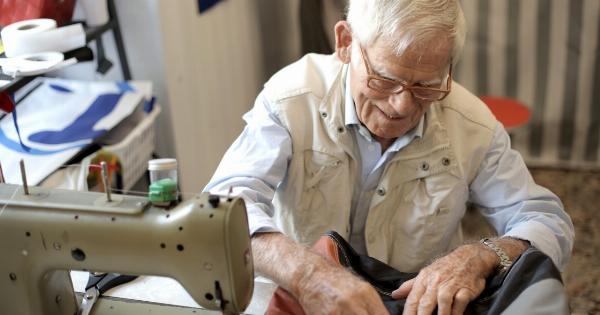Touch is an essential aspect of human interaction. It can communicate affection, comfort, and support, and it can also help regulate our emotions. However, touch can also have negative effects, especially when it is unwanted or inappropriate.
This is why it is important to understand the sensitive areas of the body that should not be touched without proper consent. In this article, we will explore the 8 sensitive areas of the body that should be respected and the potential long-term physical and emotional effects of unwanted touching.
1. Genitalia
The genitals are perhaps the most sensitive area of the body and the one that should definitely not be touched without proper consent. Touching someone’s genitalia without consent constitutes sexual assault and can cause serious harm.
Sexual assault survivors may experience physical pain, emotional trauma, and lasting psychological effects that can severely impact their wellbeing.
2. Breasts and Nipples
Many people consider breasts and nipples a highly sensitive area, and touching them without proper consent can be painful and uncomfortable.
Women and non-binary people have often been objectified through unwanted touching of their breasts and nipples, particularly in the context of sexual harassment or abuse. This can cause long-term issues such as anxiety and distrust, which often require professional counseling to address.
3. Buttocks
The buttocks is another sensitive area of the body that should not be touched without consent. Many people find touch on their buttocks uncomfortable or invasive, especially when coming from a stranger or acquaintance.
Unwanted touching of the buttocks can also increase the risk of sexual assault or harassment.
4. Face
The face is an essential part of our identity and plays a crucial role in interpersonal communication. Touching someone’s face without proper consent can be startling, frightening or alienating.
Unwanted facial touching can also be potentially dangerous as it may cause infections, allergies, or even facial paralysis.
5. Ears
The ears are a highly sensitive area of the body and can be easily damaged by forceful or unsanitary touching.
Touching someone’s ears without permission can also be uncomfortable and jarring, potentially leading to feelings of anxiety or distrust in the person doing the touching.
6. Inner thighs
The inner thighs are a sensitive area that should not be touched without explicitly asking for consent. Touching the inner thighs without permission can be triggering especially for individuals who have suffered from sexual abuse or trauma.
Even if the touch is not sexual, it can still elicit an intense emotional response.
7. Feet
The feet are often thought of as “dirty” or “gross”, and touching them without proper consent can be unpleasant or even upsetting for some people.
Foot touching can also be a form of humiliation or dominance in certain contexts, particularly when done in a degrading or aggressive manner.
8. Hair and Scalp
The hair and scalp are important to a person’s appearance and self-esteem, and are often regarded as highly personal and private. Unsolicited touching of the hair or scalp can be invasive, uncomfortable or even painful.
Furthermore, it can negatively impact a person’s self-worth and confidence.
Conclusion
Unwanted touching, even if well-intentioned, can cause long-term physical and emotional harm to victims, reinforcing harmful power dynamics and making them feel powerless and vulnerable.
To avoid potential trauma and health issues, it is important to always ask for consent and respect the sensitive areas of the body that should not be touched without proper consent. It is our responsibility as individuals to foster an environment of mutual respect and dignity and ensure that everyone’s bodily autonomy is respected.






























